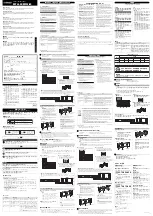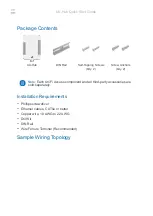
Configuring the Cisco 2524 and Cisco 2525 Routers 4-15
Configuring the Router
Step 4
Enter the BRI interface, encapsulation method (PPP), authentication type, target
router’s IP address and ISDN number to dial, and the dialer group number:
Router (config)# interface bri
port_number
Router (config-if)# encapsulation ppp
Router (config-if)# ppp authentication chap
Router (config-if)# dialer map ip
targetrouter_ipaddress
targetrouter_phonenumber
Router (config-if)# dialer-group
groupnumber
Note
Do not use periods or hyphens when you enter dialing numbers.
Step 5
Some ISDN switch types, such as Basic NI1 or DMS-100 switch service, require
you to configure a service profile identifier (SPID). Enter the SPID information as
follows, substituting the appropriate entries for your installation:
Router (config-if)# isdn spid1
SPID_no phone_number
Router (config-if)# isdn spid2
SPID_no phone_number
Step 6
To set up a second B channel for bandwidth on demand, enter the load-threshold
command to set the ISDN load threshold. The load threshold determines the
percentage of network loading at which the second ISDN B channel is triggered.
The value ranges from 1 to 255 (100 percent).
Router (config-if)# dialer load-threshold 128
In this example, the value of 128 means that when the first B channel reaches
50 percent of its bandwidth capacity (128 equals 50 percent of 255), the second B
channel will be activated to assist with the bandwidth load.
Step 7
Enter the access-list command to configure the ISDN line to come up whenever
IP packets are to be sent:
Router (config-if)# access-list
access-list-number permit ip
sourcerouter-ipnetwork sourcerouter-subnetmask
targetrouter-ipnetwork targetrouter-subnetmask
Router (config)# dialer-list
groupnumber list access-list-number








































